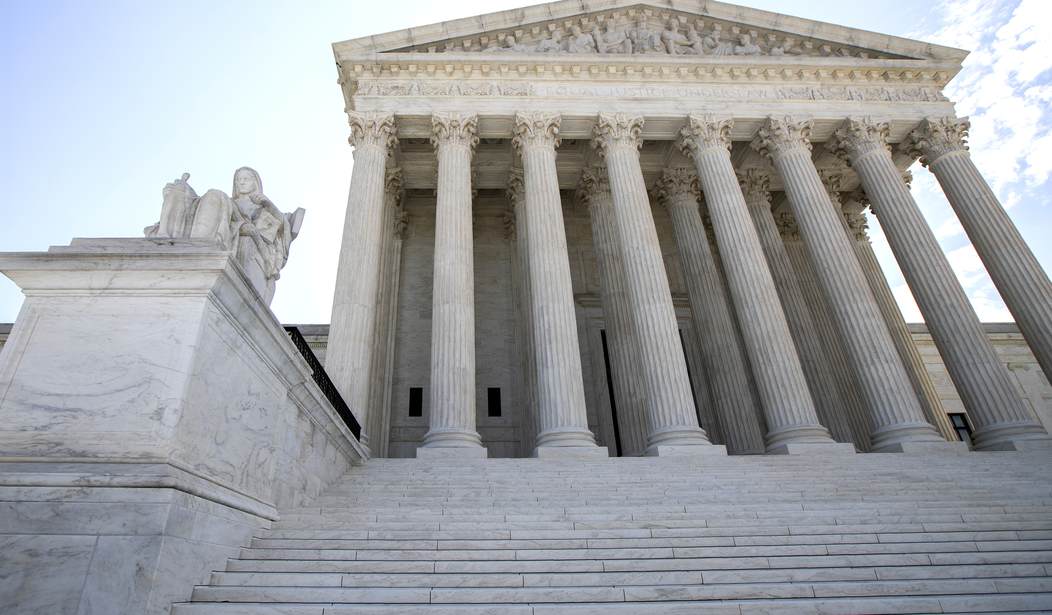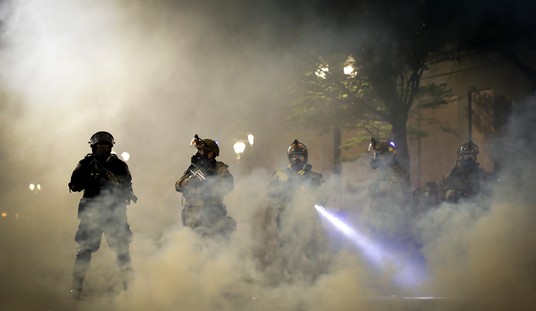The short answer is “not much.”
The Court provided no meaningful guidance on whether it had any views on the substance of the allegations made by Texas against Pennsylvania, Georgia, Wisconsin, and Michigan. Nor did it suggest who, if not Texas, might have a basis to assert violations of the “Electors Clause” by state and local officials.
The Order stated that Texas lacked standing, but unlike the circumstances in lower court decisions, it is not necessary for the Supreme Court to provide a reason for its conclusion in this regard. Lower courts do so because their decision is subject to review and appeal to a higher court by the litigants. Since that is not possible with a decision from the Supreme Court, there is no need for them to explain the “why” behind their decision — and they did not.
The issue of “standing” has well established legal “principles” that courts rely on at the outset of a case to determine whether the matter that is the subject of the complaint is properly brought in the court in which it is filed.
These principles arise out of the “case and controversy” requirements of Article III of the Constitution which are at the foundation of the federal civil justice system. In layman’s terms, it means that a federal court must sometimes make a decision as to whether the complaint concerns a real “claim” for which a judicial resolution and remedy is the only appropriate avenue for relief open to the plaintiff, and whether the plaintiff who has brought the claim is the correct party to do so. Does the plaintiff have a real and concrete interest in the outcome that is different from the interest of the public at large?
The decision on “standing” is a “judgment” based on the nature of the claim raised by the complaint, the nature of the plaintiff who has raised the claim, and the relationship of the plaintiff to the claim raised.
Also, and important to the Supreme Court, “standing” reflects respect for “separation of powers” by giving the judicial branch a basis to reject efforts to resolve disputes through the courts that are, in actuality, political disputes that should be left to the political branches to resolve.
The language used by the Court yesterday was as follows:
“The State of Texas’s motion for leave to file a bill of complaint is denied for lack of standing under Article III of the Constitution. Texas has not demonstrated a judicially cognizable interest in the manner in which another State conducts its elections.”
That is a way of simply saying that what Texas has brought before the Court is not a “case” or “controversy” as those terms are used in Article III of the Constitution — at least not with Texas in the role of plaintiff.
Does that mean that some other plaintiff might be able to make similar claims — not in “State v. State” litigation under the Supreme Court’s “original jurisdiction”, but as claims raised in lower federal courts by litigants who have suffered concrete harm from the same conduct that Texas has alleged? In other words, is there still an avenue through which the actions of state and county officials which are alleged to have been contrary to the election laws of their states can be made into a federal claim by an appropriate plaintiff such that a federal court could grant some form of remedy?
I think the answer to that question is “Yes”, and the support for that answer is found in two federal appeals court decisions — one before the election arising out of Wisconsin, and another after the election arising out of Pennsylvania. It is not impossible that the matter from Wisconsin could make its way to the Supreme Court prior to January 21, although it is quite unlikely.
But let’s deal with the Pennsylvania case first. Bognet v. Pennsylvania was a case filed prior to the election by a GOP congressional candidate and four Pennsylvania voters seeking to challenge the decision by the Pennsylvania Supreme Court to extend by three days the period within which “mailed-in” ballots could be received and counted in the upcoming November election. The complaint alleged, among other claims, that the actions of the Pennsylvania Supreme Court violated the “Electors Clause” of the US Constitution which grants only to the state “legislature” the authority to determine the “manner” of selecting Electors.
The district court denied the plaintiffs’ request for injunctive relief on the basis that they lacked standing and the plaintiffs appealed to the Third Circuit Court of Appeals.
On the issue of the claims raised based on the “Elector’s Clause”, the Third Circuit held:
[P]rivate plaintiffs lack standing to sue for alleged injuries attributable to a state government’s violations of the Elections Clause… Because Plaintiffs are not the General Assembly, nor do they bear any conceivable relationship to state lawmaking processes, they lack standing to sue over the alleged usurpation of the General Assembly’s rights under the Elections and Electors Clauses. No member of the General Assembly is a party to this lawsuit.
The second sentence is likely “dicta” because there was no need in Bognet to determine whether the General Assembly of Pennsylvania had standing — they were not a party to the case. But this is the view as expressed by the Third Circuit on the issue of who would have standing to raise a claim against state and county officials alleged to have acted in ways contrary to state law in the manner they conducted an election.
If we now turn to a decision prior to the election out of the Seventh Circuit, we have an example of the Court recognizing the standing of a state legislature to bring suit over the alteration of state election law which was done as part of an agreement that the State Executive was a part of. I wrote an extensive article about the DNC v. Bostleman matter on October 7.
Prior to the election, a federal district court judge in Wisconsin extended the deadline for the receipt of mail-in ballots by six days, giving voters until Nov. 9 for their ballots to be received by Wisconsin election officials and still be counted, assuming the ballots were mailed on or before Nov. 3. The Order made several other changes to the manner in which Wisconsin would conduct the election that were contrary to the Wisconsin statutes.
This was viewed as one of the instances of “friendly” lawfare by which Democrat state officials, sued by Democrat Party interest groups, would agree with certain factual allegations made in a complaint. Pursuant to those agreements the parties had a basis for a settlement agreement or Court Order that, in effect, gave the Democrat Party interest group what it sought by bringing the action — even when doing so meant violating statutory provisions passed by the Legislature.
The case was appealed by the Wisconsin Legislature, the Wisconsin GOP, and Republican National Committee who sought to intervene to block the settlement. Initially, the Seventh Circuit Court of Appeals granted an “Administrative Stay” preventing the district judge’s order from taking effect. But the Court then dismissed the appeal on the grounds that it was unclear whether any of the three parties seeking to intervene had standing to do so. The Seventh Circuit said it was unsettled as a matter of Wisconsin law whether the Legislature could bring litigation in its own name as if it were representing the interests of the State of Wisconsin — which would normally be represented by the Attorney General, and asked the Wisconsin Supreme Court to make a determination on that question.
The Wisconsin Supreme Court did so, and affirmed that under Wisconsin law, the Legislature could itself be a litigant “to represent the State of Wisconsin’s interest in the validity of state laws.”
With that question answered, the Seventh Circuit again granted the motion to stay the lower court’s order.
It is worth noting that no claims were raised in the Wisconsin case under the “Electors Clause”. The Seventh Circuit did not address, because the issue was not before the Court, whether the actions by the Wisconsin state officials in agreeing to changes to the election statutes in order to settle the lawsuit constituted a violation of the “Electors Clause”, or whether the Wisconsin legislature would be the proper plaintiff to bring an action alleging violations of the “Electors Clause.”
The Wisconsin Supreme Court held that the Legislature could bring suit on its own to defend the validity of Wisconsin laws, but it had no reason to say that this extended to bringing an action as the “injured party” asserting violations of the “Electors Clause”. So, while the Wisconsin case is helpful, it is not a perfect fit.
This, it seems to me, is the strongest alignment of parties and claims to get a matter to the Supreme Court where the “standing” requirements for an “Electors Clause” claim can be met. It will require the state legislature, in a state where it is authorized by state law to do so, to bring an action against individual state and county officials which alleges that they conducted the election in a “manner” that violated the procedures specified by the Legislature in the election statutes.
I suspect this is an impossible task at this stage given that it would need to happen in three states simultaneously. It is worth noting that five of the states in question have legislatures controlled by the GOP — Pennsylvania, Georgia, Wisconsin, Michigan, and Arizona. The Speaker of the House and Senate Majority Leader in Pennsylvania filed an amicus brief in support of the Texas motion to file a complaint against Pennsylvania. I recall reading that several members of the Georgia legislature expressed support for Texas’ effort to sue Georgia.
In Georgia and Arizona, the Legislature would have to sue state executives from the same party In Pennsylvania, Michigan, and Wisconsin the State officials are members of the Democrat Party.
Any such action would have to start in a federal district court, and then proceed through the Circuit Courts of Appeal for the different states before they could be sent to the Supreme Court for review. With only 40 days remaining until January 21, such a course of events is likely impossible.
But, as is true of the Kelly/Parnell matter that was dismissed by the Pennsylvania Supreme Court and is now pending before the US Supreme Court, these are efforts that need to be continued even if we are forced to endure a Biden/Harris administration.
The GOP needs to continue the effort to get the US Supreme Court to curtail the pre-election “engineering” of the election processes in various states aimed at creating a more favorable environment for the Democrat Party and its interest groups to “manufacture” votes out of thin air.















Join the conversation as a VIP Member